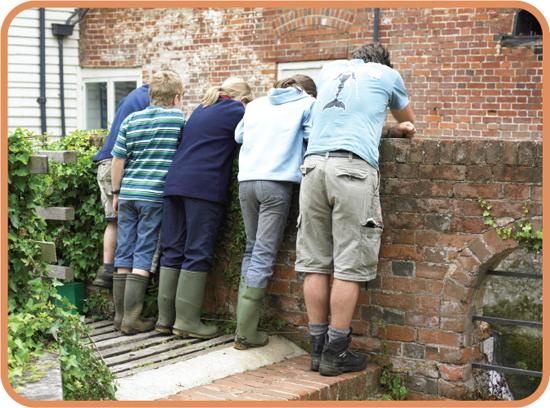
This book was never meant to be anything but the very beginning of a journey – I see it as being the map, the compass and a pointer in the right direction. As you continue to explore various freshwater habitats, you will begin to ask more questions and discover things that this book may not be able to answer. This is why this section exists.
good reading
Britain’s Dragonflies by Dave Smallshire and Andy Swash (WILDGuides). A novel and unique photoguide to dragonflies using state-of-the-art digital techniques to bring together all the stages of the lifecycle of each species. Handy if you are trying to identify the nymphs as well as the adults.
Frogs and Toads by Trevor Beebee (Whittet Books). These little books are often overlooked. OK, they do not have big, glossy pictures but the information contained within the pages and the line drawings all helped by the easy-to-digest language makes these great books to read from cover to cover and become an instant expert on frogs and toads.
A Guide to Dragonflies of Great Britain by Dan Powell (Arlequin Press). Another great book on this charismatic pond predator but this one takes an entirely different approach, using illustrations to show exactly what you need to be looking for to separate some of the more common species from each other.
Illustrated Keys (Field Studies Council, www.field-studies-council.org). These easy-to-use illustrated keys are fantastic and lightweight, contain lots of information and are very cheap at just a few pounds each; there is a huge range of subjects covered.
The First-time Naturalist by Nick Baker (Collins) is a good general guide to all natural habitats.
Handy organizations
Froglife: A charity that is all about conserving – well – frogs! Great website that answers all those FAQs about our cold-blooded friends – www.froglife.org.
Ponds Trust: A charity that is all about ponds and their conservation value. Worth a look if you are serious about yours – www.pondstrust.co.uk.
Royal Society for the Protection of Birds (RSPB): They really are the big ones; not only an organization that gives the birds a lot but also the members. Numbers speak for themselves as the RSPB has over a million members. Great magazines too – for adults, kids and teenagers. They produce many handy leaflets with information pertaining specifically to the garden too – www.rspb.org.uk or telephone 01767 680551.
The Wildlife Trusts: They are a countrywide organization and there will be a regional group near you organizing lots of ‘wildlifing’ activities for all ages. They produce regular magazines for both grown-ups and younger members and they have a junior wing called Wildlife Watch. This is an organization I would love to have joined when I was a kid but didn’t know about, so that’s why I’m telling you now – www.wildlifetrusts.org or telephone 0870 0367711.
Handy stuff – equipment supplies and other contacts
Alana Ecology: Everything a naturalist would ever need can be found within the pages of this catalogue. This really is a one-stop shop; if only I could stop shopping there I would be a richer man – www.alanaecoloogy.com or telephone 01588 630173.
Interplay UK Ltd: Makers and suppliers of fine educational science-based toys, the most reliable stockist of tadpole shrimps (triops) and the necessary means to culture them – www.interplay.co.uk or telephone 01628 488944.
Marris House Nets: Netting, net and net handles! If it goes in a net, they have the net it goes in. No website, but you can telephone 01202 515238.
Watkins and Doncaster: These guys have been peddling natural-history collecting and sampling gear for years, I bought my first butterfly net and mammal trap from them when I was a nipper. What they do not know about ‘gear’ isn’t worth knowing – www.watdon.com or telephone 01580 753133.
